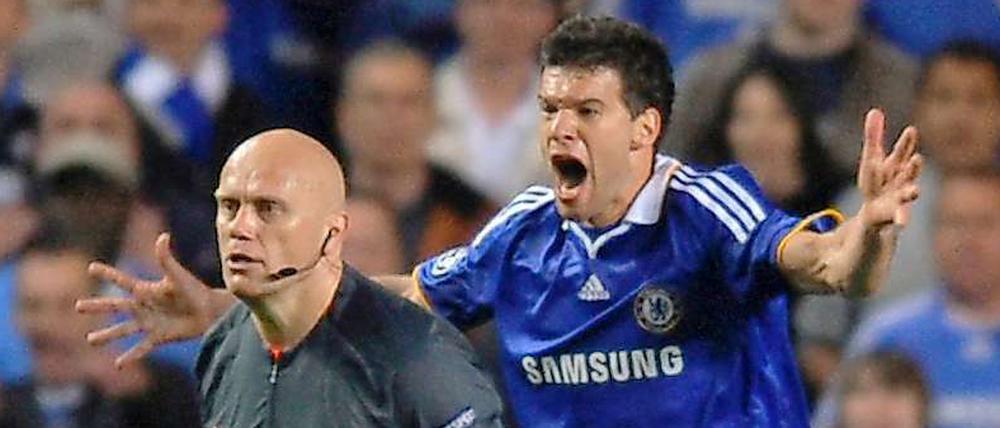
© dpa
Michael Ballack: A Man-Machine who had his moment
Man-Machine Michael Ballack has hung up his boots. Unfortunately, he left too little to remember him by during his stay in London, says Titus Chalk. But he had his moment.
It would be fair to say that Michael Ballack’s retirement has not brought the UK to a grinding standstill, nor has it seized the sports headlines in the way his move to Chelsea did in the early summer of 2006. At best, Tuesday’s news, even in parts of West London, will be greeted with a shrug. Ballack was always too enigmatic to inspire great affection during his stay in England. Instead of being a player who was loved, he was player, it was argued, who should be loved. That rationally, when all the honours were stacked up, the appearances tallied and the occasionally impressive performances logged, he had earned that most irrational of amorous feelings. You cannot have it both ways though. Ballack was granted esteem.
It was never clear how he would fit in at Chelsea, where Frank Lampard was the chief attacking midfielder of the all-conquering side José Mourinho built and passed on to the four further managers who Ballack would serve at Stamford Bridge. Accordingly, though he was mostly dependable when called upon, he never produced the blend of majesty and magic fans had expected from the Germany captain, a player who scored nigh on a goal every two games for Bayern Munich. There was certainly a purpose to what Ballack did – just as his career moves seemed deliberate and cold-blooded – but it was rarely easy to discern.
Personally, I cannot erase the memory of watching him as Chelsea were humbled by the returning Mourinho’s Inter Milan side in the Champions League last 16 in 2010. By that point, he seemed a player whose genuine ability had been replaced by façade. By impressive straight-backed posing, rather than surging runs. By stout interventions, although never far from the centre circle. By ostentatious gesticulating, rather than deft, accurate passing. He became a parody of himself – and in a nation all to happy to dig up the stereotype of the “efficient” German footballer, Ballack became something of Kraftwerk’s titular Man Machine, a footballing algorithm capable of yielding certain outputs when provided certain inputs but a character lacking in genuine warmth, spontaneity or passion.
Why should a footballer demonstrate any of those things of course? When his trophy cabinet is more or less laden with the spoils of a decent career. When there are cups and titles to point at (as well as more runners-up medals than Ballack would care for). Perhaps because football will never be just a list of statistics. Rather it will always stubbornly remain a myth-spinning oral history as much as it is a constellation of sane, sanguine analysis; a collection of I-was-there-whens recounted in hushed tones over sticky pints to impressionable apostles.
In truth, Ballack could leave only one such moment behind him and that was in defeat. As he summoned all his ire to berate referee Tom Henning Ovrebo as Barcelona reached the 2009 Champions League final at Chelsea’s expense, Ballack momentarily became one with every Chelsea fan watching. It was only as events slid from the rails of the serene, calculated path towards his presumed destiny, that Ballack became a human to love and embrace. And it was a moment that disappeared into the London night almost as soon as it was born.
- showPaywall:
- false
- isSubscriber:
- false
- isPaid:
- showPaywallPiano:
- false